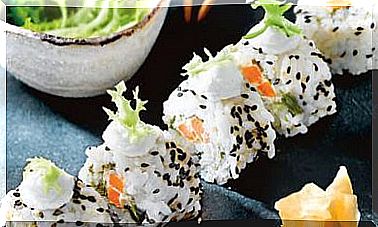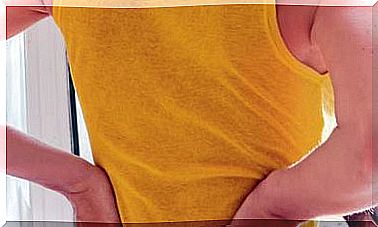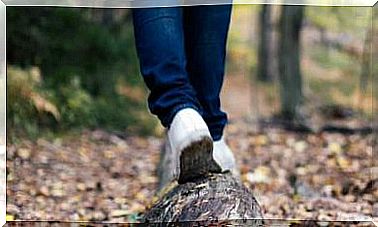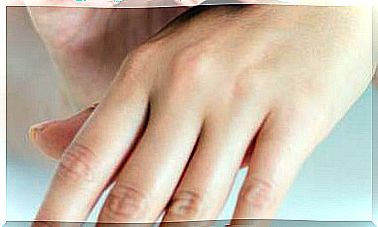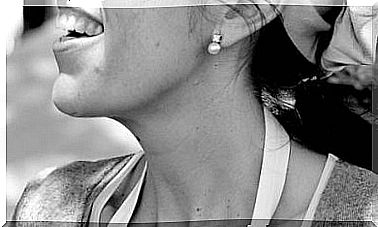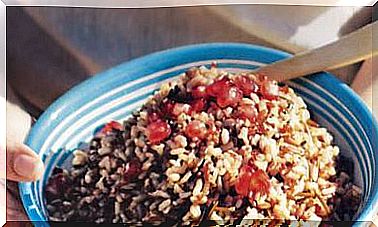Spring Asthenia: Keys To Avoid It And Live The Season With Vitality
Nature wakes up and yet many people feel unexpected tiredness. What are the causes of asthenia or spring fatigue and how to avoid it?

- What are the symptoms of spring asthenia?
- Why do we get tired in spring?
- The effect of our lifestyle on fatigue
- Diet to regain energy
- Do you need supplements in spring?
- Habits to stimulate energy
With the entry of spring comes the allergy to pollen and an alteration that is less talked about but that can affect many people: asthenia, a type of fatigue and discouragement that affects five out of ten Spaniards.
Spring manifests itself in nature as an explosion of life, but many people feel more fatigue than usual, are listless and barely gather the strength to start the day. They suffer from what is popularly called “spring asthenia”, which appears when the body cannot adapt to the changes that the new season brings.
Spring asthenia is an especially annoying alteration when good weather invites you to enjoy the outdoors and the beauties that nature offers.
It is a temporary disorder, which is usually overcome in a few days or weeks but in some cases it can last the entire season. Also, it can overlap with other types of tiredness. In fact, the causes of all energy deficiencies are similar.
The solutions too: eating a balanced diet, sleeping the necessary hours, practicing moderate exercise and maintaining an orderly life are the best prevention and the best treatment for people who are tired or sensitive to seasonal changes.
What are the symptoms of spring asthenia?
The person suffering from this disorder feels:
- tiredness
- soft spot
- drowsiness
- difficulty concentrating
- apathy
- daze
- a feeling of pressure in the head.
They may also appear:
- dizziness
- irritability
- lack of appetite
- decreased libido
- even a weakening of the immune system that increases the risk of infection.
Medical manuals do not consider asthenia as a disease because its effects disappear and there are no significant alterations in physiological variables.
However, if a person feels abnormally tired, it is advisable to consult with the doctor and do not assume that it is something temporary. Tiredness is also a symptom of many diseases, such as anemia, thyroid conditions, or heart failure.
In addition to the specific remedies that can be taken, fatigue warns of the need to introduce changes in lifestyle and attitude towards life. From this point of view, the symptoms are not as important as their causes.
At the moment they are a warning and if they are ignored they can become a major disorder in the medium or long term. Therefore it is not a good idea to wait for them to just disappear.
Why do we get tired in spring?
The general lack of vitality reveals that the body has not adapted well to the increase in daylight hours, the rise in ambient temperature, changes in humidity and atmospheric pressure, or the concentration of pollen in the air. Even the change of the official time can affect.
All these factors alter the secretion of hormones that regulate biological rhythms, that is, the physiological processes that lead to rest at night and to prepare for activity during the day.
The biological clock is regulated by the hypothalamus, the part of the brain where the nervous and endocrine systems associate and which controls body temperature, appetite and thirst. When something disrupts this process, the person can feel exhausted and sad.
When the eyes are opened in the morning and they receive the light, the message is transmitted to the hypothalamus, which cuts the secretion of the hormone melatonin, related to sleep and rest, and orders the secretion of serotonin, the neurotransmitter that promotes vitality and joy.
The brain is very sensitive to variations in the environment. All people can accuse them, but while some hardly realize it, others feel bad,
There are no data on the incidence of spring fatigue, although some experts believe that to a lesser or greater extent it affects half of the population, especially women between 20 and 50 years old who live in northern latitudes, where winter is harsher. and long and the arrival of spring brings a more abrupt change.
Other specialists believe that asthenia does not distinguish genders, ages or domiciles, but that there are people who are vulnerable or sensitive to it because they are previously stressed, physically exhausted or going through an emotional crisis. In other words, the change of season is just the last straw for poor quality of life.
The effect of our lifestyle on fatigue
Today’s lifestyle is exhausting. It is a phrase that is repeated everywhere, but behind which there is a certain pride. Exhausting is the right thing to do today and resting is not justified. Tiredness can be a consequence of how you have chosen to live.
We are going through the era in which the existence of new diseases such as fibromyalgia and chronic fatigue is recognized at the same time that we do not want to look directly at their root causes.
In 1881, George Beard, a prestigious American neurologist, himself a victim of fatigue, defined ” American neurasthenia ” as “a physical disorder caused by the loss of nervous strength that affects very sensitive people who overindulge at work. ” Throughout the twentieth century, this disorder became global.
Physiological differences can make women, who often work, care for their family and look after their appearance to be attractive, more vulnerable to fatigue than men, while men are more vulnerable to heart attacks and ulcers.
According to Shelley E. Taylor, professor of Psychology at the University of California-Los Angeles, when faced with a stressful situation, women seek the support of others instead of attacking or fleeing, which would be a more masculine response. If the support of the social environment is insufficient, the woman may be immobilized by sudden tiredness.
Fatigue is a wake-up call to the need to make changes in lifestyle and in the attitude with which one copes with everyday life.
Fatigue works as a safety mechanism : it indicates to the body that the threat is already affecting the muscles (feeling of lack of energy) and that if the effort continues, noble organs may be affected. In other words, it signals the imperative need for rest.
The problem is that there is no way to rest and even less preventively and with a clear conscience. Today work, consumption and activity seem to be the only sources of personal fulfillment, prestige and success.
In many people, boredom also appears as a consequence of the contradiction between intimate convictions and reality, which imposes values that are not shared. Faced with this situation, you can think about the positive changes that can be introduced, even if the mood is not good.
Obsessing over discomfort is part of the problem, not the solution. In fact, the accumulation of frustrations, apprehensions and other negative thoughts and emotions leads the body to imbalance that manifests itself in asthenia or fatigue at any time of the year.
Diet to regain energy
Asthenia, fatigue, seems to be the result of a sum of negative factors. To prevent or treat it, these causes must be eliminated and healthy stimuli added.
A balanced diet, especially rich in vitamins and minerals, can help you adjust to spring.
- Fast-absorbing carbohydrates, present in sweets and products made with refined flours, should be moderated because they cause ups and downs in energy supply. On the other hand, whole grains, legumes and fruits provide it more gradually.
- It is important that breakfast is abundant and digestive. A cup of muesli with yogurt is a good option. You can also have a large glass of homemade fruit juice (oranges, lemons, pears, apples …).
- The leafy vegetables and nuts provide magnesium and vitamins of group B, which strengthen the nervous system. To increase the daily rations, ingredients such as dandelions, carrots, beets, celery, spinach, parsley, nuts and seeds can be added to salads.
- Drinking a glass of water every two hours prevents mild dehydration that goes unnoticed and often worsens the feeling of exhaustion.
- Traditional Chinese medicine advises eating fresh, light foods in spring and cold (yin) foods in summer, so that energy is balanced. Therefore, it is advisable to eat vegetables – if possible green, such as spinach, chard, celery, cucumber, romaine lettuce or mung bean -, fruits such as apple, lemon and orange, and drinks such as Green Tea.
- Traditional Chinese medicine identifies spring with the liver, an organ to which it associates the acid taste. In this it coincides with a large part of the cleansing diets that are practiced in this season in the West and that have in common their acid taste, usually based on lemon juice.
Increasing the acid taste and green leafy vegetables benefits the liver, an organ that must now eliminate toxins accumulated in the winter, in addition to supplying glycogen to the muscles.
Do you need supplements in spring?
If the diet is already balanced and rich in fresh vegetables, it may be convenient to take a quality vitamin and mineral supplement for a couple of weeks.
Especially interesting is the contribution of beta-carotene, which is converted into vitamin A and favors adaptation to changes in light.
Another way to get an extra dose of nutrients is to turn to superfoods that have traditionally been used against fatigue, such as royal jelly, pollen and brewer’s yeast.
Habits to stimulate energy
Along with diet, the other essential factor is rest. It is advisable to go to bed early to sleep as much as you need. It is not necessary to set a number of hours as a goal but you can review the schedules and increase the time you spend in bed, which is never wasted.
The goal is to wake up every day just before the alarm goes off. After getting up, it is highly recommended to open a window and let the sun and air brush against your face while taking a few deep breaths.
Waking up should never be abrupt, so it is worth taking the time necessary until the body and mind are activated little by little.
A few minutes of meditation, a few stretches or the harmonious and fluid movements of tai chi or chikung before starting the workday can be very beneficial.
If you have to go outside and go to work, it is preferable to walk a little apart from using a means of transport.
Instead of succumbing to discouragement, remember that spring is the time to show up, rejoice, and shine. It is a time of year especially conducive to getting excited about new projects.
It is convenient to stop to analyze the life situation and ask yourself what you want for the next few months. If you regularly practice a relaxation technique or meditate, it encourages the flowering of creativity, intuition and self-confidence.
To get started, just sit comfortably in a quiet place and focus on your breathing, without thinking about any particular matter.
A special attention to the care of the body can produce a boost on the spirit. For example, it is very beneficial to scrub after the shower with a brush or a loofah sponge. This removes dead skin cells and toxins expelled through the skin.
But above all moderate exercise is recommended . Chinese medicine considers that excess rest damages energy because of its stagnation. This energy must be in motion, like nature, which changes seasons.
Spring asthenia could be approached as an extension of winter’s rest and immobility: the body stagnates. To activate it, you can take brisk walks, run, swim or practice any sport, if possible in a green environment. They are suitable exercises to tune the heart and respiratory system.
In addition, aerobic activity – that which obtains an extra dose of oxygen – increases the efficiency of metabolism and favors the release of endorphins, substances produced by the body that are associated with feelings of well-being and euphoria.
Other physical practices with effects at deep energy levels, such as yoga or tai chi, stimulate the inner source of vital energy, in addition to stretching muscles, tendons and ligaments.
If you suffer physical discomfort, it may be appropriate to put yourself in the hands of an osteopath or a practitioner of tuina (Chinese massage) or shiatsu (Japanese massage), techniques that work on the physiological and energy balance of the body, affecting the painful points or where the vital energy does not flow.
It is essential to regain contact with nature. Each person has their way of doing it: one will walk along the beach, another will work in his garden, another will explore an unknown mountain, another will simply walk through an urban park …
In any case, do not forget to take deep breaths in the open air daily, because it is the most direct way to tune in to life in spring.
If the appropriate modifications are made in the lifestyle, taking advantage of the change of season, it is less likely that asthenia related to changes in the environment appears. Even allergy symptoms may be avoided or reduced, if they are experienced at all.
Spring should be a season of hope and prosperity, as it is the basis for those that follow. In it, everything is born and grows to reach its maximum splendor in summer and withdraw in the cold months. It is, therefore, the moment to specify the intention and decision so that the growth unfolds to the maximum.
Revitalize with the help of plants
Although asthenia must be approached from different fronts, herbal medicine can become a great ally to boost the available energy.
The so-called adaptogenic plants increase physical and mental resistance. These are some of the most suitable.
Rosemary
Rosemary, sometimes called “Mediterranean ginseng” is a great stimulant of the immune system that also tones the nervous system and benefits the respiratory organs . Together it produces a restorative effect that combats muscle fatigue and discouragement.
A mixture with cinnamon, chopped vanilla and mint leaves is recommended, at the rate of one level tablespoon of the mixture per cup of water. Boil it for a minute, let it rest for ten more and have a glass before starting the day and a second cup in the middle of the afternoon.
Licorice
The moderate consumption of licorice acts on the symptoms of fatigue and allergy but an excessive or prolonged intake can cause headache, lethargy and hypertension.
The adequate dose for asthenia is 25-100 mg of extract daily, divided into two doses, for a maximum of eight weeks. It is taken in the morning, half an hour before breakfast and lunch.
Caltrop ( Tribulus terrestris )
It is a great stimulant of adrenaline production, which helps to withstand stressful situations. It also stimulates blood flow, is an aphrodisiac and favors a large number of metabolic processes.
It is taken as a decoction of its seeds: 5-10 g in 100-150 ml of water.
Schisandra (Schizandra chinensis)
Widely used by traditional Chinese medicine, schisandra acts as a powerful antioxidant and anabolic agent. Research shows that it stimulates the central nervous system and favors the transformation of carbohydrates into reserve energy (glycogen). The optimal dose is 3 to 9 g daily.
Eleutherococcus or Siberian ginseng
Several studies have shown that Eleutherococcus increases oxygen consumption, strengthens feelings of energy, and lowers blood pressure. The recommended dose is 2-3 g daily of root or 300-400 mg of extract.
